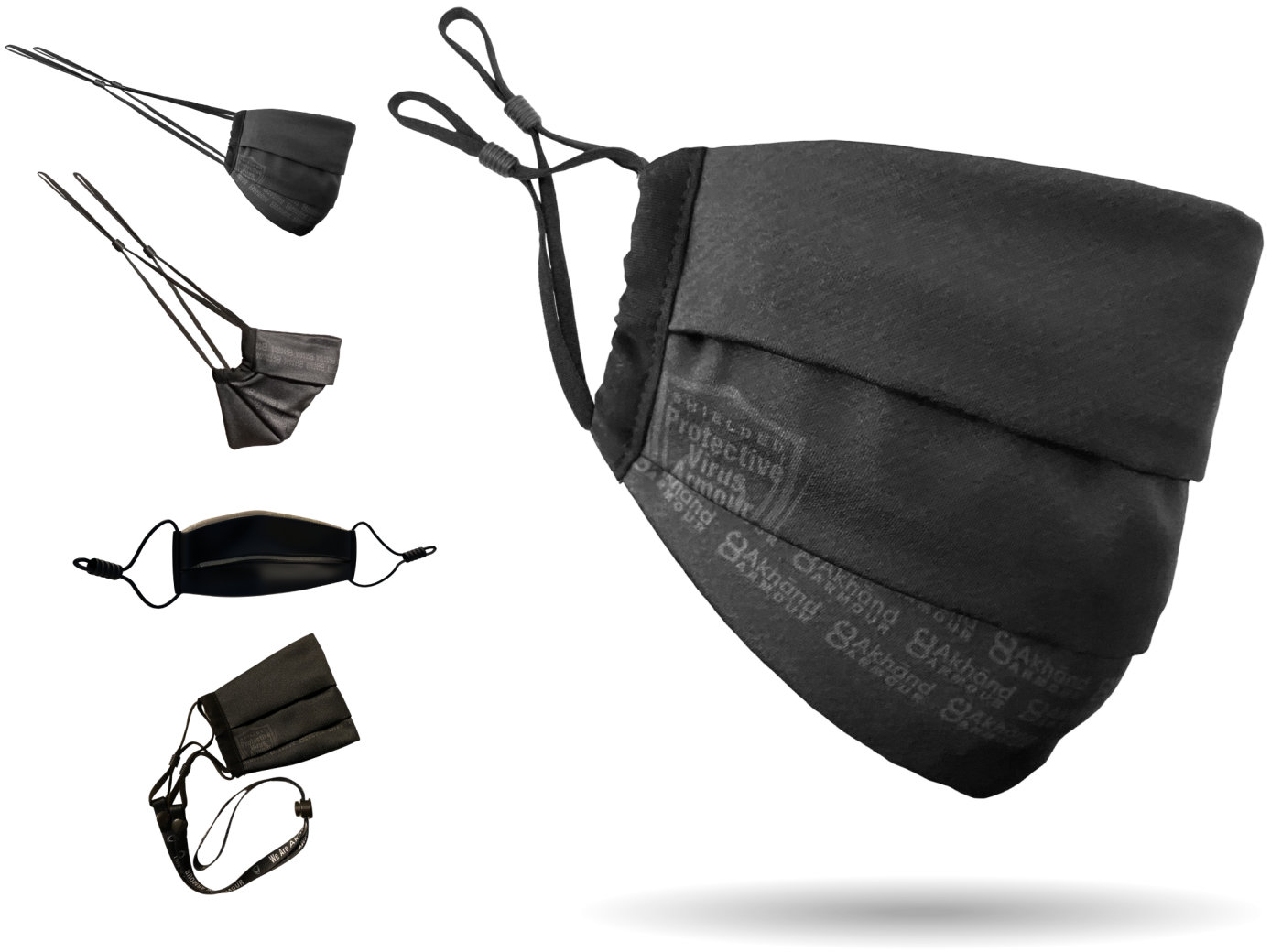A groundbreaking range of wearables which uses virus neutralising technology to kill off droplets containing infectious diseases such as Covid-19 has been launched by a Milton Keynes company.
Akhand Armour says its technology, which it has initially rolled out on a range of face masks, sanitising face mask pocket cases, glasses cases, shopping bags and mobile phone cases, reduces virus transference by removing landed infected droplets from circulation.
The wearables have been independently tested and certified at MSL, a UK microbiological testing laboratory, and are the first to achieve an ISO certification for non-medical face masks and wearables.
Founder Meena Hanspal said: “As soon as infected droplets land on the wearables – which are impregnated with a virus destroying tech – the outer wall of the coronavirus is destroyed, rendering it useless.
“Killing it off means it cannot infect and cannot mutate, so not only do we mitigate contact-based transmission, we mitigate the likelihood of variants developing.”
The wearable technology effectively acts as a self-sanitising eco-system, continuously neutralising infected droplets as they land.
Hanspal added: “This means that users are what we call human virus neutralisers, moving through the community. There will be strength in numbers – the more people using the tech, the greater the community-shielding effect.”
The new wearables arrive just as the UK starts to fully open up after spending most of the past 18 months in some form of lockdown.
Akhand Armour, which terms the new technology ‘Adaptive Non-Medical PPE™’, says that virus neutralising technology has been around for decades and is “well tested, robust tech” which has been repurposed to help reduce community transmission.
Hanspal added: “I realised at the height of the pandemic that expertise here in the UK was being underutilised – it’s as though the information needed by the public in order to better protect themselves was being withheld from them. We’ve now democratised PPE, opening it up for the general public.”
Dr David Greensmith, one of Akhand’s scientific advisors and a leading authority in infectious diseases at the University of Salford, said that traditional face coverings could become contagious surfaces by collecting microbes through use.
He added: “A covering which is designed to prevent transmission may, after time, facilitate it.
“A face covering augmented in the way Akhand Armour has developed can ultimately reduce the likelihood of microbe spread between individuals… and effectively contribute to a respective reduction in R value.”
Hanspal added: “We’ve engineered wearables fit for ‘Covid World’. We disguise it as everyday wear, make it easy to use whilst at the same time make sure it works by self-sanitising on the fly. We make it easy for the user and easy for the people around the user.”
The T4 Quad-lock Transformer Face Mask uses two different virus destruction technologies to self-protect whilst the sanitising face mask pocket case also continues to destroy virus on both the mask and in the user’s pocket between uses.
Remaining active for the life of the textile, the wearables are much more sustainable than disposable face masks, with each T4 Quad-lock mask saving upwards of 400 disposable masks per person.
Akhand Armour has also developed scarf-mask hybrids (called a Scarsk™) for people who do not like wearing masks, and a baby changing blanket for use in public baby changing rooms or when travelling.
“Even when restrictions are removed, many people will be hesitant about potential risk since Covid numbers are rising steeply,” said Hanspal.
“Using an anti-viral wearable when you go out will dramatically reduce those risks, helping to neutralise the virus within the community.”
All of the products have been engineered to be diversity friendly, with ‘2nd Skin Form Fit’ accommodating multiple face shapes, hats, turbans, beards, headwear and hearing aids.
Having been tested to 50 washes, the T4 Quad-Lock System and wearables not only outsmart the virus, they also outsmart ordinary face coverings.
 Heart
Heart Haha
Haha Love
Love Wow
Wow Yay
Yay Sad
Sad Poop
Poop Angry
Angry

